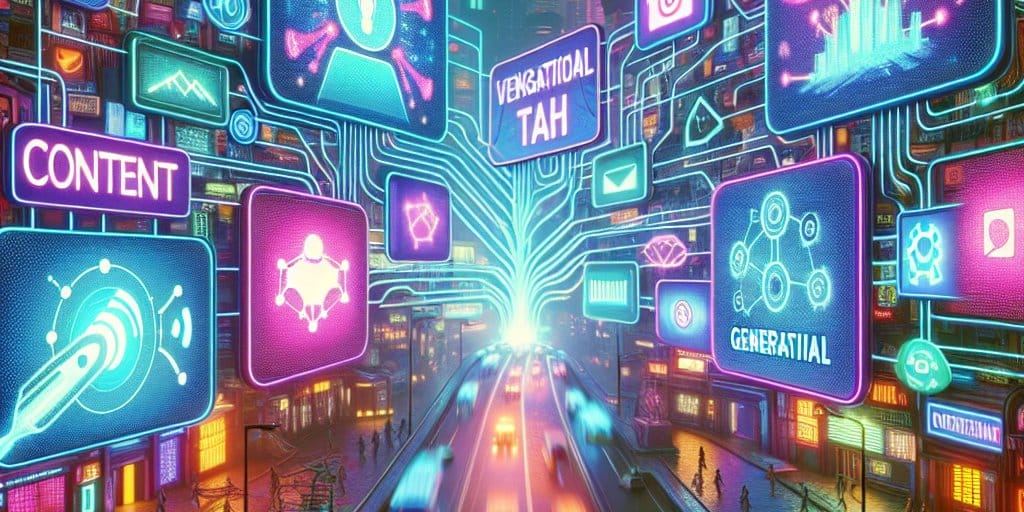The Future of Content Marketing: Embracing Generative AI in 2025
As we approach 2025, the landscape of content marketing continues to evolve, heavily influenced by the rapid advancements in generative AI technologies. These tools are not just supplemental; they're becoming central to strategic content creation and dissemination.
Generative AI is revolutionizing how content is crafted, personalized, and scaled, offering unprecedented efficiency and innovation. In this blog, we explore the transformative role of generative AI in content marketing as we look towards the year 2025.
Enhanced Content Creation
The primary allure of generative AI in content marketing is its ability to produce large volumes of high-quality content swiftly. This capability is changing the game for marketers worldwide.
AI-driven tools leverage natural language processing (NLP) and machine learning to generate articles, blog posts, and even multimedia content that resonates with target audiences. This not only speeds up the content creation process but also helps maintain a consistent voice and style.
"Generative AI is not just a tool; it's a revolutionary force in digital marketing, enabling brands to enhance creativity and connect with their audience on a deeper level." - Dr. Jane Smith, AI Researcher
Navigating the Challenges and Ethical Considerations
While the benefits are substantial, the integration of generative AI in content marketing isn't without its challenges. Ethical concerns, particularly regarding authenticity and transparency, are at the forefront of the debate.
Ensuring that AI-generated content is disclosed as such helps maintain trust with audiences. Moreover, there's the challenge of maintaining quality and preventing the dissemination of misinformation, which AI tools could accidentally propagate if not properly supervised.
It's crucial for marketers to establish guidelines and use AI responsibly to uphold the integrity of their brands and the trust of their consumers.
Optimizing Personalization and Targeting
Generative AI excels in analyzing data to understand consumer behavior, preferences, and trends. This insight allows for unprecedented personalization of content.
By 2025, AI-driven personalization will likely be more nuanced, utilizing deeper analytics to tailor content not just to segments, but to individual user preferences, thereby increasing engagement and conversion rates.
Real-World Applications and Success Stories
Looking at how companies are already leveraging generative AI provides a glimpse into the future of content marketing. Many brands are not just experimenting but are also seeing tangible benefits from their AI-driven strategies.
Case Studies from Leading Brands
In 2023, a well-known tech company reported a 50% reduction in content creation time after integrating AI writing assistants, according to a study by Marketing AI Institute. This not only saved costs but also increased the output of marketing campaigns.
Another example includes a retail brand that used AI to personalize email marketing campaigns, which resulted in a 30% uptick in open rates and a 25% increase in click-through rates.
- 50% reduction in content creation time (Source: Marketing AI Institute).
- 30% increase in email open rates; 25% increase in click-through rates (Source: Retail Brand Study).
Frequently Asked Questions
What is generative AI?
Generative AI refers to artificial intelligence algorithms designed to create content and generate new data models similar to existing data sets. It's used extensively in content marketing for creating text, images, and other media.
How does generative AI maintain a brand’s voice?
Through machine learning, AI tools analyze existing brand content to understand and mimic the brand’s unique style and tone, ensuring consistency across all generated content.
Is AI-generated content considered ethical?
Yes, if used responsibly. It is essential for marketers to disclose AI involvement in content creation to maintain transparency with their audiences.
References
- Marketing AI Institute. "Impact of AI on Content Production."
- Retail Brand Study. "Personalization through AI: Metrics That Matter."

